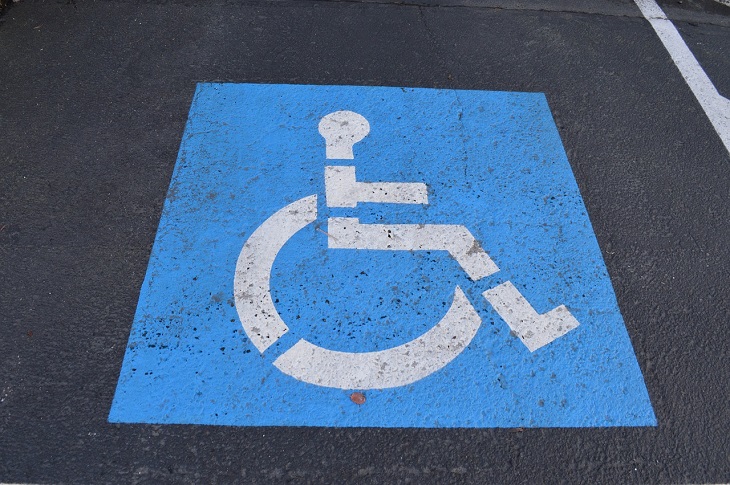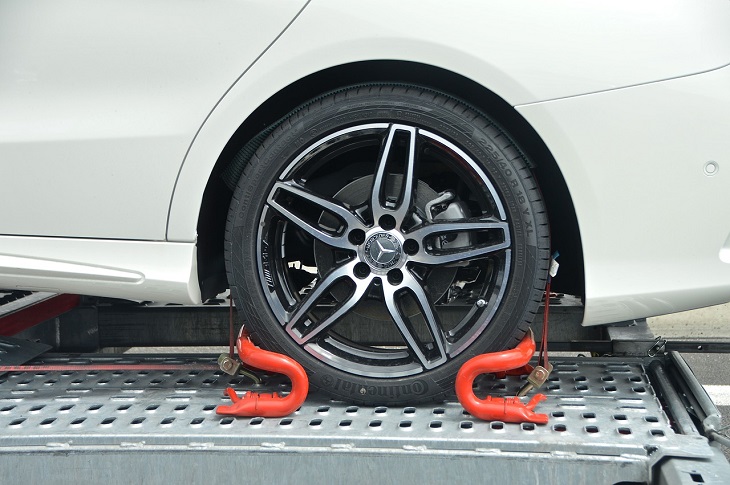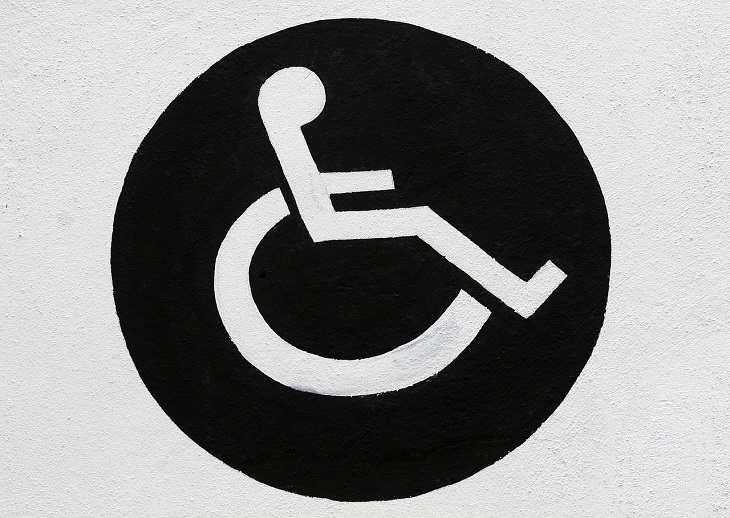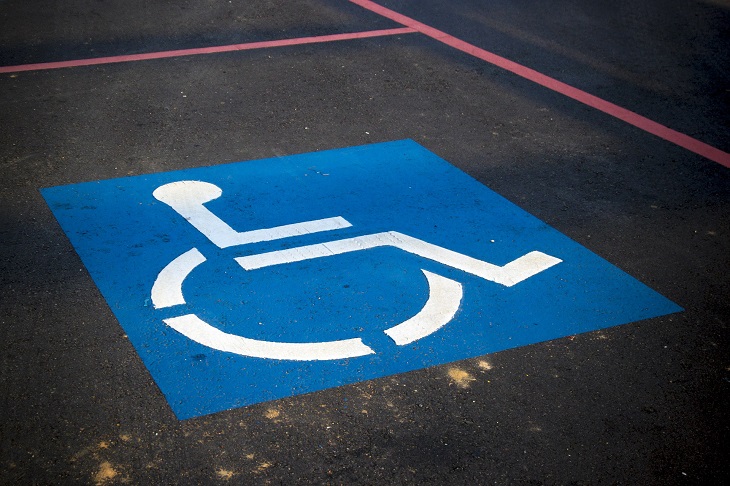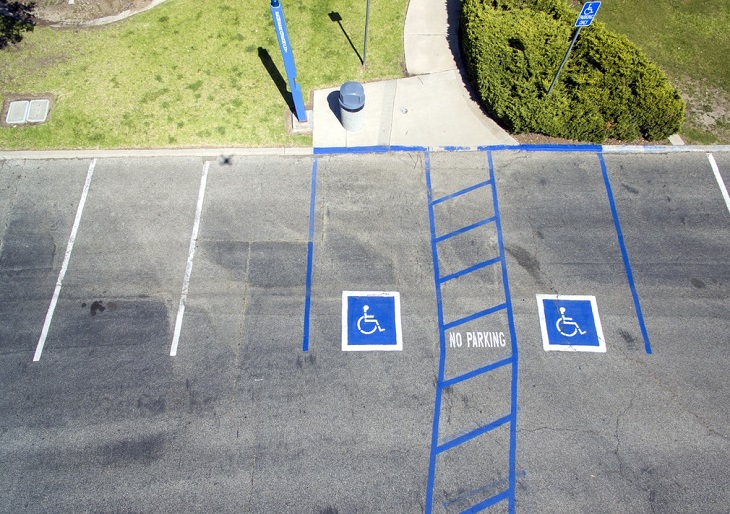A lot of disabled drivers write to us asking things like, “How do I get a handicap parking space in front of my house?”. This is a very understandable question, because having a handicap sign designating a disabled space near your house can make life a lot easier.
All public parking lots and streets in the United States are required by law to contain a certain number of disabled parking spaces. This is stipulated in the Americans With Disabilities Act. But even still, as most disabled drivers can attest, it is sometimes difficult to find an available handicap space.
If you live in a built-up urban area, it can be even tougher to find a disabled parking space near your house. Even in an area with a large number of disabled spaces, during busy periods it can often be the case that all disabled spaces are in use. This poses a big problem for disabled drivers whose homes are in such areas.
Getting home after a long day at the office to find that the disabled spaces near your home are all occupied is stressful and (to say the least) inconvenient. So, to avoid such events, a lot of disabled drivers want to know… How do I get a handicap sign in front of my house?
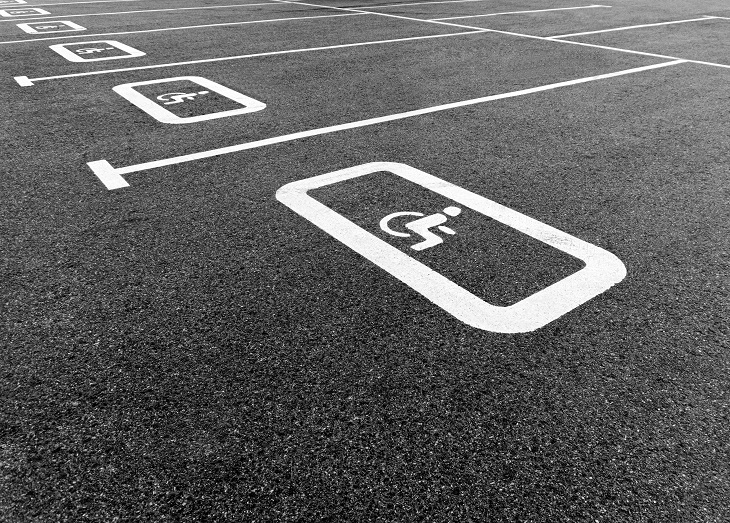
Can I Get A Disabled Parking Space Outside My House?
Whether or not you can get a disabled parking space outside your house depends on where you live. In most states, and municipalities within states, it is possible to get a disabled parking space in close proximity to your house if it is essential.
Many areas, such as the Chicago metropolitan area, have an official Residential Disabled Parking program. To find out the specific situation in your area you should contact your local Department of Motor Vehicles (DMV).
What Are Residential Handicap Parking Signs?
Residential handicap parking signs are signs that designate a parking space as “disabled” and only useable by the person who holds the relevant residential handicap parking permit. These spaces only exist in some municipalities.
Can Any Disabled Parking Permit Holder Park In A Residential Handicap Parking Space?
If a disabled parking space is designated specifically as a residential handicap parking space, the only people who can park in it are people who hold a disabled parking permit and a residential handicap parking permit.
The sign above a residential handicap parking space will usually have a permit number on it that will match the number on the residential handicap parking permit of the person who can use it.
Not all states have this system in place. In some states, a disabled parking space will be installed near a disabled permit holder’s home, but it will be available for any disabled parking permit holder to use.
Does Your Residence Have A Private Residents’ Parking Lot?
If your residence has a private residents’ parking lot, it will be required by law to have a certain number of disabled parking spaces. If this is the case it may be more difficult to get a handicap parking space on the street outside your residence.
How Do I Get A Handicap Sign In Front Of My House?
Many areas have an official program that deals with applications for Residential Disabled Parking. In these areas, you will need to apply through this official program. Each area’s application process is different, so you should contact your local DMV for further details.
In areas that don’t have an official Residential Disabled Parking program, you can still make a request to your local DMV. These requests are usually honored, and new disabled spaces will be installed as near as possible to your address. However, in areas with no official Residential Disabled Parking program, the new spaces will usually be available for use by all disabled permit holders, and not just residents.
What Do I Need To Show To Get A Handicap Sign In Front Of My House?
To get a handicap space in front of your residence you will need to show:
- Your disabled parking permit
- Proof that you live at your address
- Proof that you do not have a viable alternative parking arrangement

Do I Need To Pay To Get A Handicap Sign In Front Of My House?
Depending on where you live, there can be various costs involved in getting a handicap space in front of your home. These can include:
- An initial application fee (usually between $20 and $100)
- An annual maintenance fee (approximately $25 annually)
- Installation costs (in places where no official Residential Disabled Parking program exists)
How Long Does It Take To Get A Handicap Sign?
Once your application for a handicap sign in front of your house has been accepted, it usually only takes a few weeks to a month to have the sign installed.
How Do I Get A Disabled Parking Permit?
The quickest way to get a disabled parking permit is to have an online consultation with a licensed medical professional. This can be done through the Dr. Handicap online clinic.
Dr. Handicap will put you in contact with a licensed medical professional who will verify your disability and certify the forms that you need to submit to your local DMV in order to acquire a disabled parking permit. It is a simple, quick, and easy process!
